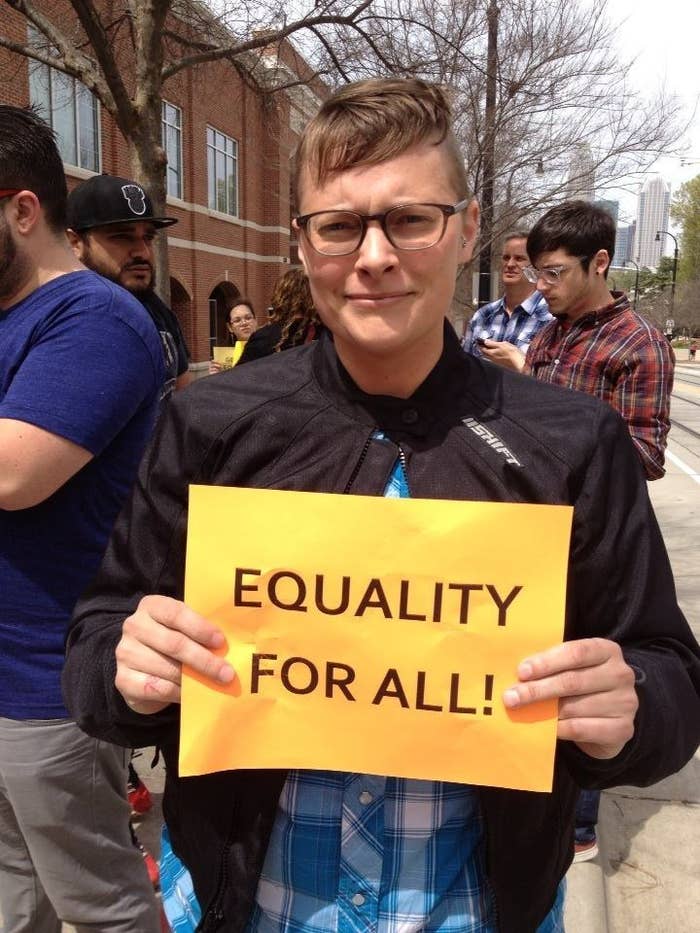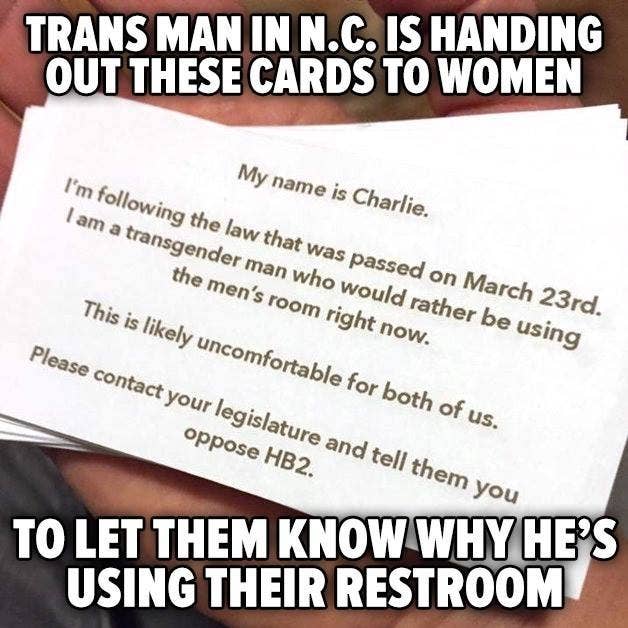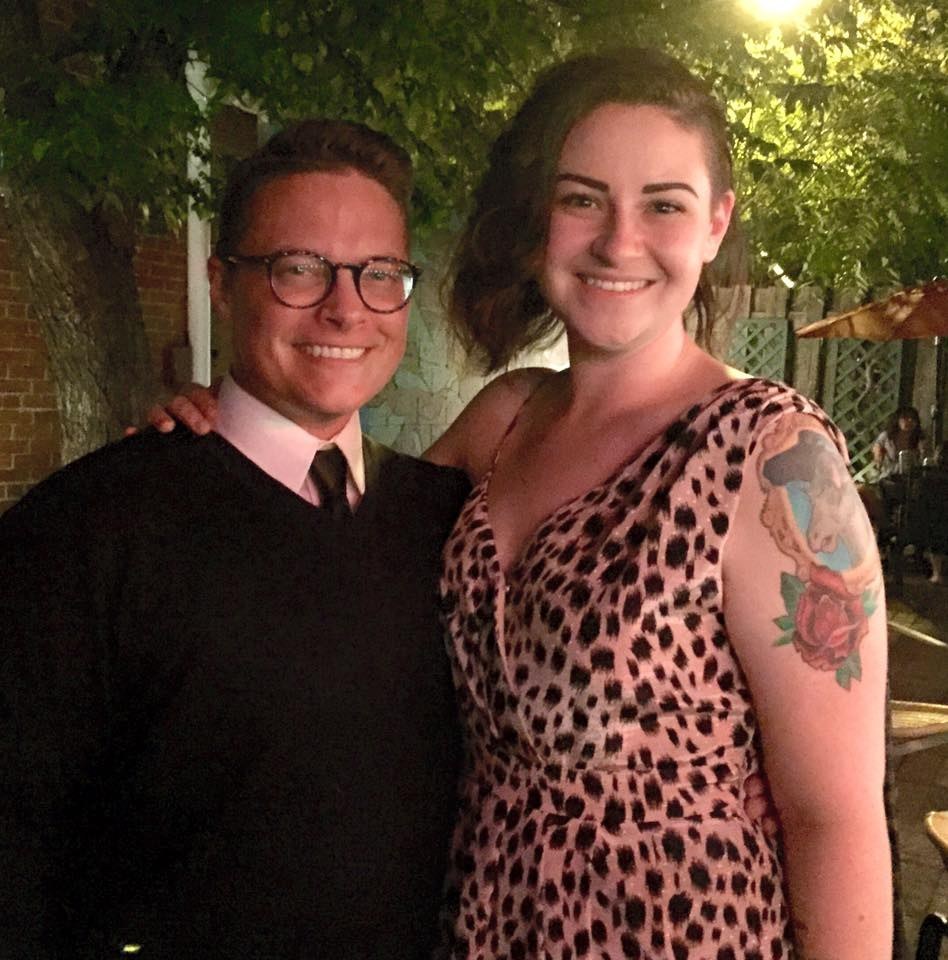Charlie Comero, a trans man living in Charlotte, North Carolina, thought of a creative response to the recent passing of the H2 Bill: personalized business cards to hand out in the women's restroom, which he would now be forced to use.

Comero posted a photo of the printed card to his Facebook, explaining that if he was going to be forced to use the women's restroom he would turn it into a teaching moment. "This is likely uncomfortable for the both of us," the card reads:
"When I started feeling male privilege during my transition, I vowed to myself that I would use that privilege to bring awareness to things that might not be popular to say," Comero wrote in the post.
His original Facebook post, and the creative response, quickly spread online:

The idea came to Comero while discussing the North Carolina bill with his girlfriend. "I asked her opinion regarding what bathroom I should use," Comero told BuzzFeed News. As a trans man, Comero has never felt entirely safe in either restroom.

If you're wondering, yes, Comero has handed out the cards in various public restrooms, to very mixed reactions: "Everywhere from refusing to take them and not wanting to hear anything from me to giving me a hug and telling me they love me."

Response from the trans community has been encouraging and positive. "I think the cards and the story of their absurd necessity brings to light the experiences of the transgender community, and in doing so, reminds people that we're humans too."

Since posting the idea online more than a week ago, Comero has been approached by individuals willing to cover printing costs so that other trans people can utilize the cards.
"My hope is that handing out these cards and having uncomfortable and very real dialogue with people will serve as the impetus for them to have an uncomfortable conversation with someone they know," concluded Comero.
"It becomes a pay-it-forward dialogue experience where the 'thing' people are getting is exposure to transgender people and our experiences."
